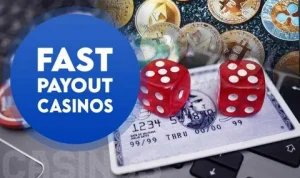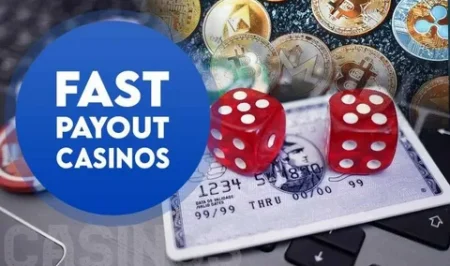The growth of online casino games has brought with it a crucial need for robust regulation. Unlike land-based casinos, which are physically present and easily monitored, online platforms operate across borders, making their oversight a complex but essential task. Effective regulation is paramount to ensuring fair play, protecting vulnerable players, preventing financial crime, and maintaining the integrity of the industry.
Why Online Casino Games Need Regulation
The primary reasons for regulating online casino iceland games are:
- Player Protection: To safeguard players from fraud, unfair practices, and problem gambling. This includes ensuring games are fair, personal data is secure, and funds are protected.
- Fairness and Transparency: To guarantee that games are not “rigged” and that outcomes are genuinely random. Regulators enforce standards for Random Number Generators (RNGs) and Return to Player (RTP) percentages.
- Anti-Money Laundering (AML) and Counter-Terrorist Financing (CTF): To prevent online casinos from being used for illegal financial activities. This involves strict “Know Your Customer” (KYC) procedures.
- Underage Gambling Prevention: To ensure minors are not able to access gambling platforms.
- Tax Revenue: For governments, regulated gambling industries can generate significant tax revenue, which can be directed towards public services.
- Combating Illegal Operators: Regulation helps to differentiate legitimate, licensed operators from illegal, unscrupulous ones, protecting both players and the industry’s reputation.
Key Regulatory Bodies and Jurisdictions
Online casino games are primarily regulated by independent gaming authorities established in various jurisdictions around the world. These bodies issue licenses, set standards, conduct audits, and enforce compliance. Some of the most respected and influential regulatory bodies include:
-
UK Gambling Commission (UKGC):
- Jurisdiction: United Kingdom.
- Reputation: Widely considered one of the strictest and most respected regulators globally.
- Key Focus: Strong emphasis on player protection, responsible gambling, preventing crime, and ensuring fair and transparent operations. They have introduced stringent rules on advertising, bonus terms (e.g., capping wagering requirements), and affordability checks. Credit cards are banned as a payment method for gambling in the UK.
- Enforcement: Known for imposing significant fines and revoking licenses for non-compliance.
-
Malta Gaming Authority (MGA):
- Jurisdiction: Malta (an EU member state).
- Reputation: A highly influential and widely recognized authority, particularly popular for licensing international online casinos due to Malta’s robust regulatory framework and EU membership benefits.
- Key Focus: Comprehensive regulation covering all aspects of online gaming, including player protection, responsible gaming, AML, data protection (GDPR compliance), and ensuring the integrity of games.
- Process: MGA licenses are valid for 10 years and require rigorous “fit and proper” assessments of operators, detailed business plans, financial stability checks, and ongoing system audits.
-
Gibraltar Regulatory Authority (GRA):
- Jurisdiction: Gibraltar.
- Reputation: Another well-regarded and experienced regulator, especially for operators targeting the UK and European markets.
- Key Focus: Strict adherence to data protection, safeguarding player funds, ensuring fair gaming experiences, and operator accountability. They work closely with the Gibraltar Betting and Gaming Association (GBGA) to maintain high standards.
-
Other Notable Regulators:
- Alderney Gambling Control Commission (AGCC): Known for its strict standards.
- Isle of Man Gambling Supervision Commission: Provides a strong regulatory framework.
- Kahnawake Gaming Commission (Canada): A well-established regulator in North America.
- Curacao eGaming: A popular, less stringent license often chosen by newer or smaller operators due to lower costs and faster processing. While it provides a basic level of regulation, it generally offers less player protection compared to the MGA or UKGC.
- State-Specific US Regulators: In the United States, online gambling regulation is typically done at the state level (e.g., New Jersey Division of Gaming Enforcement, Pennsylvania Gaming Control Board). These are highly stringent and often have very localized rules.
How Regulation Works: Key Aspects
Regulatory bodies ensure compliance through a multi-faceted approach:
- Licensing: Operators must apply for and obtain specific licenses for the types of gaming services they offer (e.g., B2C for business-to-consumer, B2B for software providers). This involves extensive background checks, financial vetting, and submission of detailed operational plans.
- Technical Standards and Audits:
- RNG Testing: Independent third-party testing agencies (like eCOGRA, iTech Labs, GLI) regularly audit the Random Number Generators (RNGs) used in games to ensure true randomness and fairness.
- RTP Verification: These agencies also verify that the stated Return to Player (RTP) percentages are accurate and that games are performing as expected over millions of plays.
- Software and Security Audits: Regular audits of the casino’s software, platforms, and security protocols (e.g., SSL encryption) are conducted to protect player data and prevent cyber-attacks.
- Responsible Gambling Measures:
- Player Tools: Regulators mandate that casinos offer self-exclusion options, deposit limits, loss limits, and reality checks to help players manage their gambling habits.
- Advertising Rules: Strict rules govern how casinos can advertise to prevent misleading claims or targeting vulnerable individuals.
- Problem Gambling Support: Casinos are often required to contribute to or signpost organizations that provide support for problem gamblers.
- Anti-Money Laundering (AML) & Know Your Customer (KYC):
- Verification: Casinos must implement robust KYC procedures, requiring players to verify their identity and address before significant withdrawals are processed. This prevents fraud and money laundering.
- Transaction Monitoring: Monitoring systems are in place to detect suspicious transaction patterns.
- Dispute Resolution:
- Regulatory bodies often act as mediators in disputes between players and casinos if an amicable resolution cannot be reached directly.
The Situation in Pakistan
It’s important to note that online gambling in Pakistan operates in a legal “gray area.” The Prevention of Gambling Act of 1977 predates the internet and doesn’t explicitly address online activities. While there’s no specific framework for licensing or regulating online casinos within Pakistan, the government often attempts to block access to international gambling sites.
Despite these efforts, many Pakistani players access offshore online casinos. In such cases, players rely on the licensing and regulation of the international jurisdiction where the online casino is based (e.g., MGA, Curacao). However, without local regulation, players in Pakistan have limited legal recourse if they encounter issues with an offshore, unregulated platform.
Conclusion
Online casino games are regulated by a complex web of international and national authorities. While the specific rules and stringency vary by jurisdiction, the overarching goal is to create a safe, fair, and transparent environment for players. When choosing an online casino, always prioritize platforms that are licensed by reputable bodies. This due diligence ensures that you are playing on a platform that adheres to strict standards of fairness, security, and responsible gaming, protecting your interests and enhancing your overall experience.










